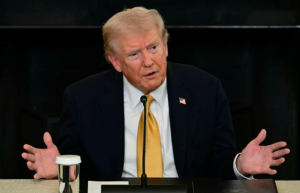In light of the recent destruction of the 2,000-year-old Temple of Baal in Palmyra, archaeologists are turning to digital mapping in the hope of preserving ancient sites from the destruction of the Islamic State, according to The Telegraph.
The terrorist group has destroyed other ruins, including that of the ancient city of Hatra, which they bulldozed in March.
"The sites represent links between East and West," Institute for Digital Archaeology executive director Roger Michel told The Los Angeles Times. "ISIS understands this and that's why they want to blot it out. Without the visual cues, the sites can be forgotten."
Archaeologists now find themselves in a race against time to employ digital mapping in order to preserve important sites and artifacts before ISIS can get their hands on them.
A team of scientists from the Institute for Digital Archaeology, a joint venture between Harvard University and Oxford University, will use cheap 3-D cameras to take photographs of sites and artifacts that currently face the threat of destruction from ISIS. The cameras that will be used cost only $27.
"The digital technology and optics that goes into these cameras is remarkably cheap," Alexy Karenowska from Oxford University told CNN. "We are capitalizing on the exponential development of digital camera technology over the past few years."
The 3-D images, which will be compiled in a database, can be used to reconstruct or make replicas of the actual sites in case ISIS decides to destroy them. The database can also be used to trace artifacts that have suddenly sprung up on the black market, artifacts that ISIS removed from ancient buildings for selling before blowing up the site.
The volunteers will use 5,000 to 10,000 3-D cameras. Some of these cameras will be delivered by mail to local photographers, while others will be brought in by volunteers. There are currently about a couple hundred 3-D cameras in the Middle East.
"If we can't protect these things on the ground, we can at least preserve a highly detailed record of what's there," Michel told BBC News.
© 2025 HNGN, All rights reserved. Do not reproduce without permission.








